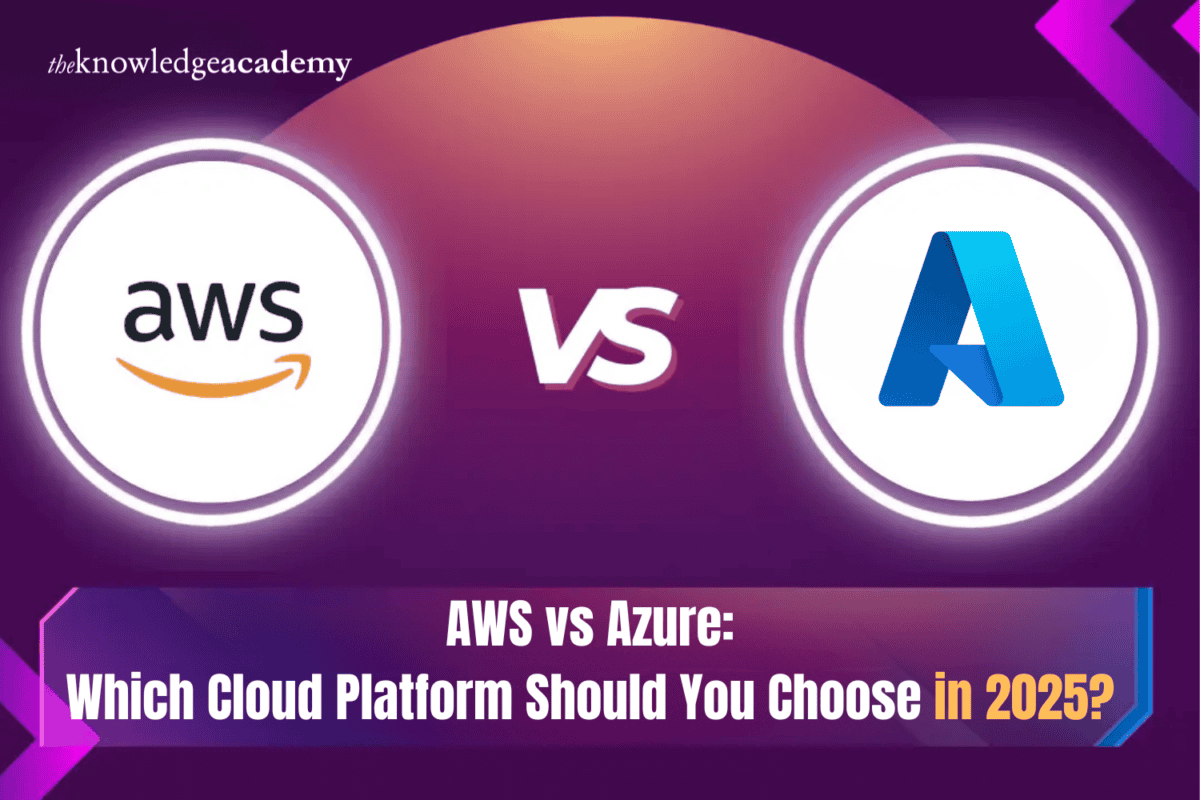
In the world of cloud computing, staying ahead requires leveraging the best technology and understanding it deeply. Whether you are a developer, IT professional, or business leader, registering in an AWS Course can be a game-changer, equipping you with the skills to harness the power of the cloud. However, as the cloud computing landscape becomes more competitive, the old debate of AWS vs Azure intensifies. Both have revolutionised industries, offering scalable, reliable, and cutting-edge solutions.
However, as we move toward 2025, the question remains: Which platform is better for your business or career? This blog explores the strengths, weaknesses, and unique features of AWS and Azure, helping you make an informed decision for the future.
A Brief Overview of AWS and Azure
Let’s look at these two cloud platforms before we compare them:
- AWS or Amazon Web Services: AWS is dedicated and was established in 2006 to perform the sole function as the first global cloud service provider. It provides all sorts of computing and storage, machine learning, and even IoT services. It has a well-established international network and a vast marketplace for all those newly established or growing businesses.
- Azure or Microsoft Azure: Azure was launched in 2010 and is a powerful tool in the market, backed by Microsoft and its business background. Due to its compatibility with goods such as Office 365 and Dynamics, Azure already has a magnet for corporations currently investing in Microsoft’s environment.
AWS vs Azure: A Feature-by-Feature Comparison
Below is a detailed breakdown of how AWS and Azure stack up across key features to help you make an informed decision:
1. Market Share and Global Reach
With the biggest market share, AWS leads the cloud industry and provides the most extensive worldwide network of data centres. However, Azure is quickly catching up, particularly in areas where Microsoft has close business and governmental relationships.
The following points highlight AWS and Azure market share and global reach:
- AWS: It includes numerous offerings, 99 availability zones, and wide coverage.
- Azure: It includes its strong presence in particular geographies and hybrid setups.
2. Ease of Use
Although AWS serves both novices and specialists, its sheer volume of services might be daunting. User Interface or UI of Azure, which closely resembles other Microsoft tools, is frequently commended for user-friendliness, especially for individuals familiar with Microsoft products.
The following points highlight the ease of use of AWS and Azure:
- AWS: If you want freedom, go with AWS.
- Azure: If you want ease of integration, go with Azure.
3. Pricing Models
Pay-as-you-go pricing, free tiers, and enterprise savings are features that both AWS and Azure provide. Cost comparison is challenging because prices vary depending on services, locations, and configurations.
The following points outline the pricing models of AWS and Azure:
- AWS: Provides reserved instances for cost optimisation and more detailed price options.
- Azure: Affordable prices with special offers for current Microsoft clients.
4. Services and Features
AWS leads in service diversity with more than 200 services, including specialised ones like Ground Station (satellite communication). Despite having fewer services overall, Azure is a leader in hybrid cloud solutions and seamless connectivity with Microsoft products.
The following points highlight the services and features of AWS and Azure:
- AWS: Wider range of services, including sophisticated Artificial Intelligence and Machine Learning or AI/ML capabilities.
- Azure: Unrivalled convergence of enterprise software and hybrid cloud.
5. Security and Compliance
Both platforms prioritise security with features like encryption, Distributed Denial of Service or DDoS protection, and adherence to important standards (including the General Data Protection Regulation or GDPR and the Health Insurance Portability and Accountability Act or HIPAA).
The following points focus on the security and compliance measures of AWS and Azure:
- AWS: Sturdy security automation and monitoring tools.
- Azure: Focused on hybrid cloud security and enterprise compliance.
6. Support for Emerging Technologies
AWS and Azure invest significantly in IoT, AI, and machine learning. While AI services of Azure are strongly linked to Microsoft’s AI developments, including OpenAI collaborations, SageMaker of AWS is a leader in machine learning.
The following points highlight AWS and Azure support for emerging technologies:
- AWS: Advanced machine learning tools like SageMaker and Recognition are among the strong points of AWS.
- Azure: Its enterprise-use AI capabilities are integrated with Office and Dynamics.
Who Should Choose AWS?
Below are the key areas where AWS proves to be the ideal choice for organisations:
- Businesses and startups require a variety of services.
- Companies are looking for strong developer tools with the widest possible worldwide reach.
- Organisations are prioritising advanced AI/ML capabilities.
Who Should Choose Azure?
Below are the key areas where Azure proves to be the ideal choice for organisations:
- Businesses that already use Microsoft products are searching for smooth integration.
- Companies that specialise in hybrid cloud settings.
- Organisations that operate in areas where Microsoft is more prevalent.
AWS vs Azure: The Verdict for 2025
Your unique demands, objectives and current infrastructure will ultimately determine which of AWS and Azure is best for you. Azure excels at enterprise integration and hybrid cloud solutions, while AWS is best for people looking for global dominance and a wide range of services. The choice in 2025 will probably come down to matching the platform’s advantages with your company plan.
Conclusion
The AWS vs Azure discussion aims to determine which platform best suits your needs, not to determine which is generally superior. Before choosing, consider your budget, technical needs, and commercial objectives. Both AWS and Azure promise innovation and dependability to support your success in 2025 and beyond. Leverage free resources from The Knowledge Academy to gain deeper insights and make an informed decision.